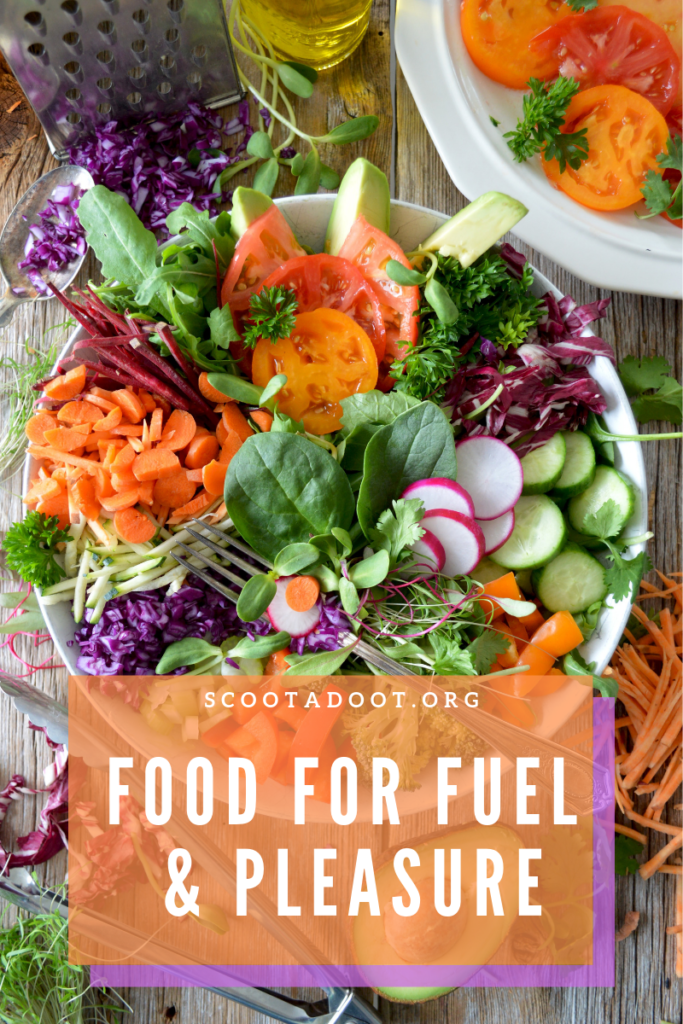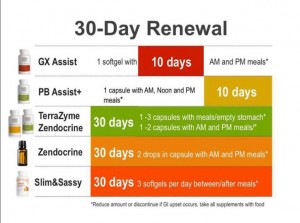Last month, Quest Nutrition announced a new initiative: QuestLabs – a space to share new products with customers while they are still in the development stage.
As a member of Quest Labs, you’re an essential part of our innovation process. This privilege comes with many benefits, including access to products that haven’t been released to the public, plus the ability to help us continue to improve through your feedback. You’re now a stakeholder in Quest and it’s an honor to work with you. Welcome to Quest Labs!
As a fan of Quest protein bars and protein powder, I knew I wanted to get in on this, so Clay and I ordered a few of the test products to try…
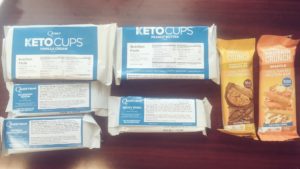
Protein Bar
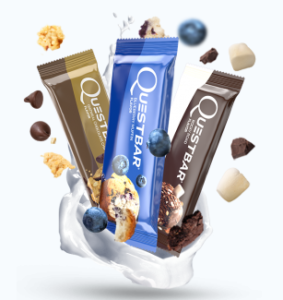 Clay: It’s Quest. They’re perfect. Nothing new here.
Clay: It’s Quest. They’re perfect. Nothing new here.
Kyle: Hahaha. Well, yes. That’s about it. I’ve been using Quest protein bars for a couple of years now and I love them. Lots of flavors, low in sugar and carbs, high in protein. Great for a pre-workout snack, these are often my breakfast go-to for a long run. The new flavors released here were Oatmeal Chocolate Chip, Rocky Road and Blueberry Muffin. Though it was difficult to pick a favorite, I think I have to give this one to Oatmeal Chocolate Chip. I would like more of this immediately.
Crunch Bar
Clay: A really nice offering that steers away from the typical protein bar platform. I dislike that Quest advertises “3g of net carbs” on the front. Carbs are carbs, and these guys come in at 18g of carbs per bar. 10g of sugar isn’t enough to be too concerned with, and it really helps in the flavor department. 12g of protein help round out the macro portfolio, along with 4g of fat.
To me, these feel confused. They don’t know if they want to be a protein bar, or an energy bar. With that, it’s hard to categorize them. That said, these are delicious. The texture is light and crunchy, and the typical “whey” taste of protein products is non-existent. The Waffle bar offered vanilla and maple syrup notes, along with a VERY realistic Belgian waffle flavor.
As a whole, I think these will do great serving its purpose as a mid-day snack, or a grab and go breakfast option.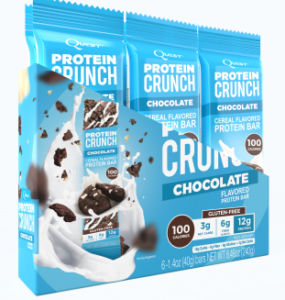
Kyle: We differ here – the “net carb” issue is one that has been long debated, and while I’m generally trying to cut back on my carbs as a whole, the 18g here (and the 15g of fiber) don’t much bother me. Mostly because I would eat this in the morning and that’s when I like to have my carb heavy meals anyways.
These also call to mind other “cereal and milk” bars that are on the market now, but these succeed in being much healthier. Thumbs up, Quest.
End of story: These things were awesome. We tried Waffle and Peanut Butter Chocolate and I would like both of those in my life frequently.

Keto Cup
Kyle: So – I’m going to say that these babies were delicious. They come in four different flavors: vanilla creme, chocolate fudge, mint and peanut butter. And as products that are meant to fit a loose ketogenic diet, they are high in fat. Clay will get more into what keto is and why he takes issue with these, but I’m going to tell you that as a treat? These are awesome. I’m not following a ketogenic diet, but I do like to make sure I get enough fat in during the day. I also have a major sweet tooth. Usually this results in me wanting cookies. Or brownies. Or both. At the same time. Unfortunately, those things are sugar bombs and make me feel gross after too many.
Keto Cups seem to fill that hole nicely. I would have one cup (a serving is two) a day when I felt like I needed a little treat, and I was surprised at how good they were! Thank you, fat, for packing in the flavor!
Ultimately, these won’t make it into a regular rotation, but I could see this product being an “every once in a while” treat.
Clay: Oh boy. Here we go. First, I would like to say that these are all opinions based on MY fitness and nutritional goals. Everyone’s mileage varies, so please keep that in mind.
I will preface by saying that I LOATHE health and wellness marketing. “Lose 10 lbs in 10 days!” “Get shredded in a month with fat burners!” “Guaranteed to add 40 lbs of mass!” While not complete lies, it is certainly misleading. They never add the whole “smart workouts and smarter dieting is required” part. It leads to bad body image, disappointment, and ultimately leaves an inexperienced individual feeling like they don’t want to come back to fitness. While Quest didn’t take it this far, there are still questionable marketing techniques in the name.
The Keto Cup.
First, the facts. A whopping 26g of fat, with 11g of carbs, and 7g of protein. It’s definitely a snack based on ketosis, the act of forcing your body to use fat for energy instead of carbs. The diet is a bodybuilding staple that allows for high caloric intakes, while still dropping body fat. The old phrase “fat doesn’t make you fat, carbs and sugar do,” is the general idea of Keto dieting.
Quest named it that to hit a place that doesn’t exist in the market. Low-carb sweets. The flavors are essentially Reese’s cup, Oreo, Thin Mint, and chocolate. My issue is that I doubt anyone actually Keto dieting wants a snack that has 11g of carbs. That’s extremely high for something not in a meal. Low carb? Sure. Call it that! Keto? No. Dieting for ketosis is difficult, requires an incredible amount of discipline, and instead of marketing a diet friendly product, it feels like Quest has made a mockery of the ketosis process. Long story short, while Keto is low in carbs, low in carbs does NOT automatically mean Keto. Keto Cups are just that. A low carb, high fat alternative to candy. They taste great, and have a nice macro profile for a NORMAL low-carb diet, but not for a Keto diet. Even on refeed days, Keto dieters seek more “real food” carbs than this can deliver. Solid product, misleading name. Quest’s marketing team made the product leave a bad taste in my mouth on this one.
To lighten things up a bit, I did really like these. I will definitely eat them again. I maintain a fairly low carb diet, and these will help with the sweet tooth cravings. They are absolutely delicious. When I go on a hard cut, where reaching a state of ketosis is the goal, they will be removed from the diet. Again, this is all based on YOUR goals for YOUR body. My issue is not with the product, but the branding.
Conclusion:
We both really like Quest products and I think we’re excited to see the ways the company is branching out. It will be interesting to which of these things make it to mass market production – QuestLabs has a great customer forum going, where folks are offering their reviews, and I think they genuinely care about what we have to say.
Note: The opinions offered above are our own – we were not offered any compensation or free products by Quest.
